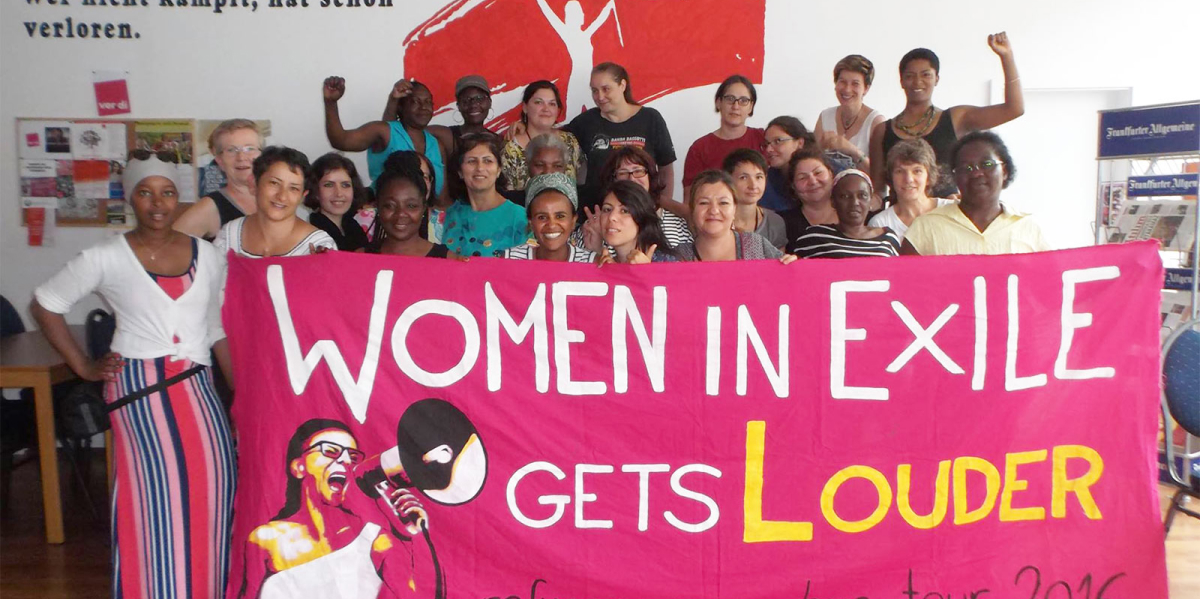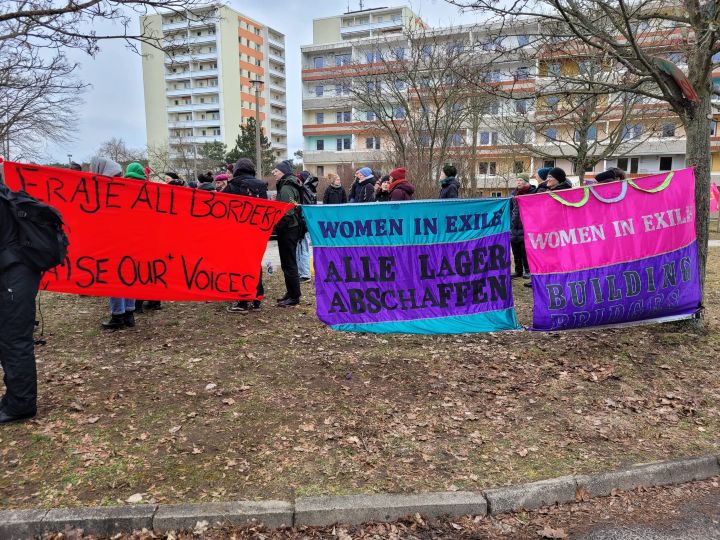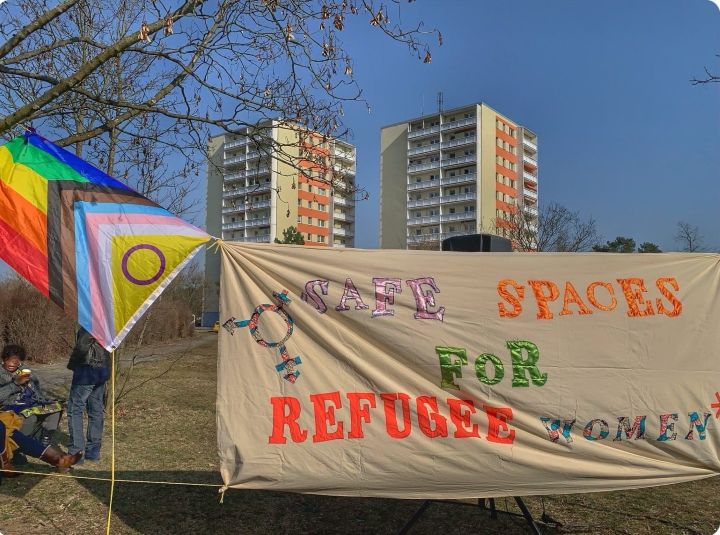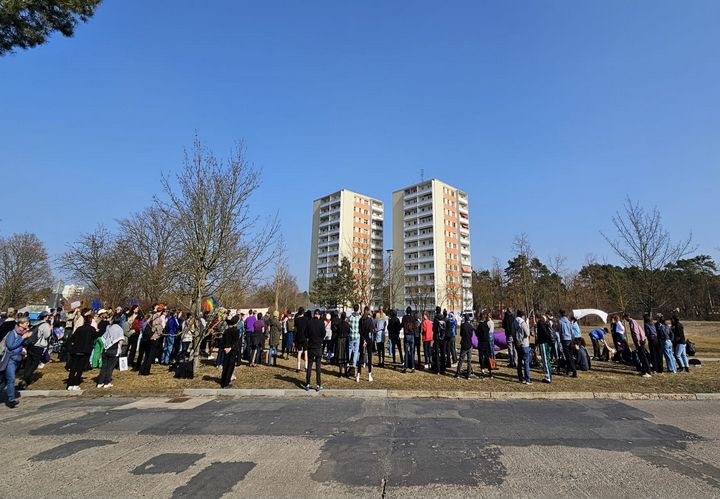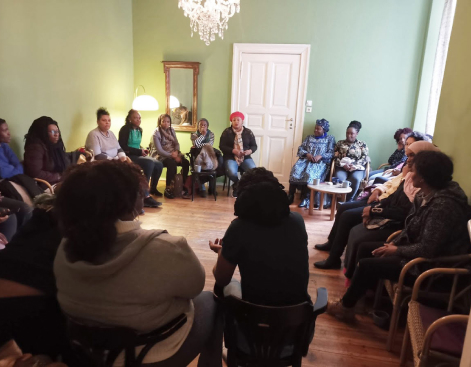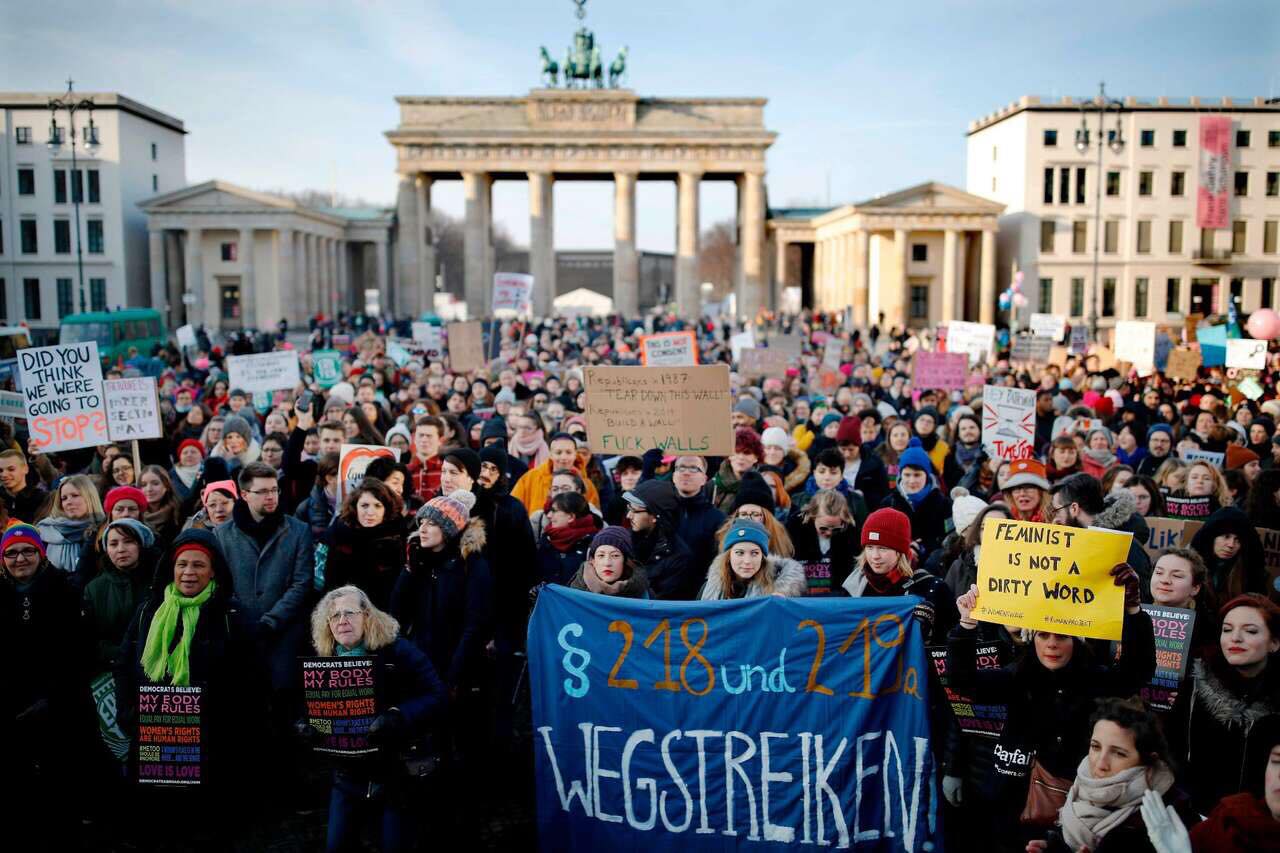
The following speech was given by Ruman Project founder at the Women’s March in Berlin, Germany in front of the Humboldt University on January 19, 2019.
As we march through a city known for a wall that stood as a symbol of division and hate, the government of my birth country is now demanding a wall be built to keep out immigrants and refugees. There’s this saying I’m fond of, “Build a longer table, not a higher wall.” Let today serve as a reminder that we all belong at the table. But while we are sitting there, we need to talk ask ourselves: “What does intersectional feminism mean to me? How do we incorporate the needs of all women in this agenda?”
It’s been 100 years since women gained the right to vote in Germany, but in 1913 when women in Washington were marching for the right to vote, Black women were asked to march at the back of the line, so they wouldn’t upset the White Southern suffragists. You see, African American women were included, but they were still marginalized…and this is also the case today. Women in minority groups are still not included in the feminist movement to the extent that they should be. It’s no secret that the Women’s March has been under a lot of scrutiny due to a lack of intersectionality within this movement and because its leaders were slow to deny and condemn allegations of anti-semitism.
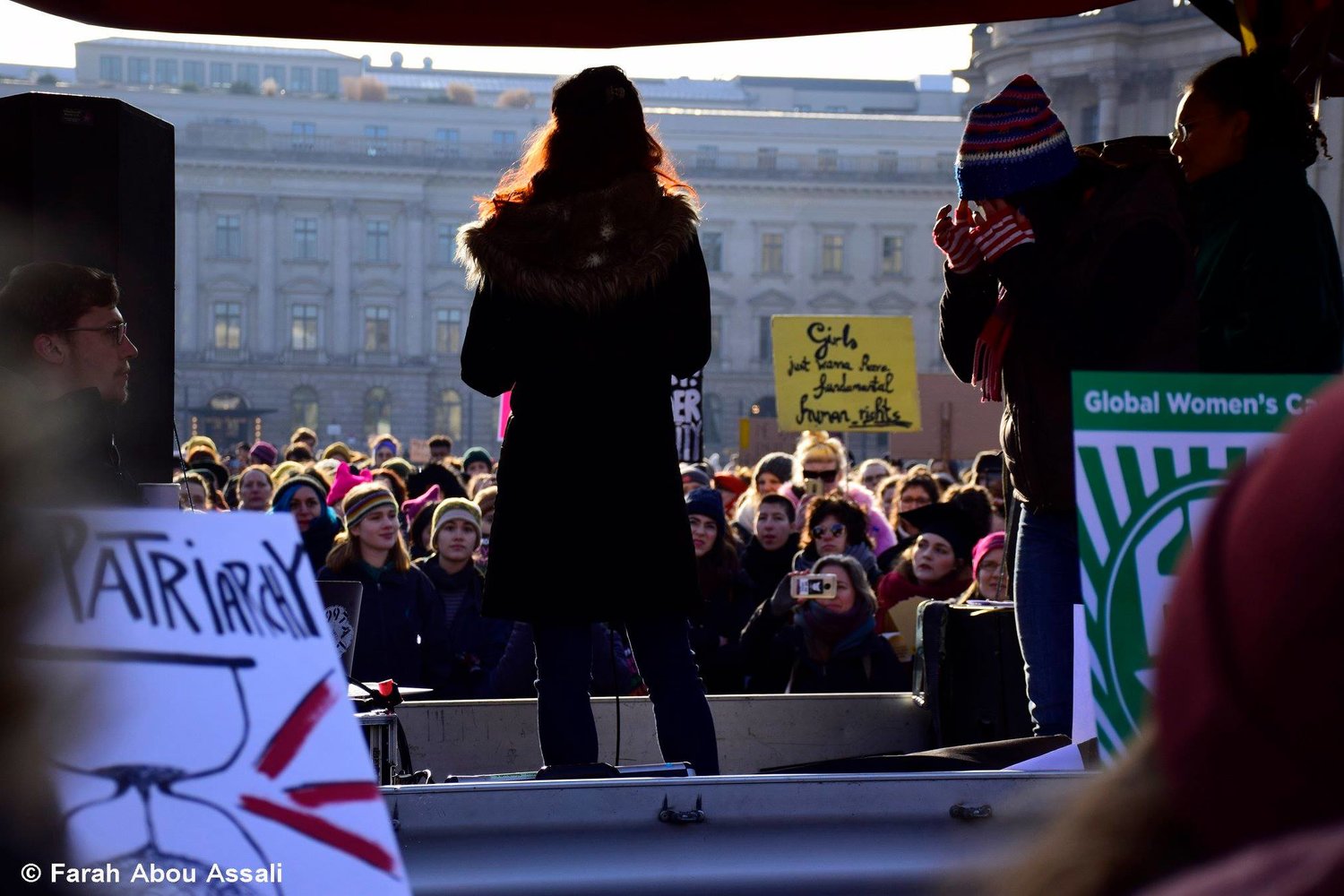
Our founder, Whitney Buchanan, at the Women’s March in Berlin speaking about fostering Christian-Muslim relations and supporting refugee women.
To be honest, I was very hesitant about speaking here today for these reasons, and because of my privilege as a hetero-able bodied-White Christian woman from the U.S. South. But perhaps it’s times like these when we can’t just throw up our hands and say, “I’m not going to show up for the women’s movement”, because we’ve got so much work to do to dismantle white supremacy and the patriarchy. We cannot let this divide grow further and we need to learn from our mistakes as activists. Yes, it’s true that this isn’t the movement of our great-grandmothers, but if this movement is to be truly intersectional, we must reaffirm that there is no place for Islamophobia, xenophobia, anti-semitism, homophobia, or any other kind of bigotry in our communities.
This is why Ruman Project is here today: to remind Berlin that we desperately need to engage in dialogue that fosters Christian-Muslim relations and supports refugee women, because intersectional feminism is nothing without interfaith dialogue. Ruman Project is a grassroots research and advocacy organization that envisions a future where Western nations are no longer afraid of Islam and the Muslim and refugee communities. Though we are just getting started with our work, we believe in open and intersectional urban societies, as well as the active participation of refugee women in cultural and social life. We want to achieve interfaith harmony through inclusive relationship building and dialogue.
Real lasting relationships involve conflict and that’s not necessarily a bad thing. Productive conflict and dialogue can make us better individually and collectively, but talks about intersectional feminism have often been hesitant to engage religion. For example, in Germany, some argue that only recently there have been conversations that provide frameworks for European Muslim women’s leadership and the need to properly build lasting relationships with refugee women. This is unfortunate, because acknowledging our religious and cultural differences, while providing space for disagreement and safe confrontation, is necessary to develop our intersectional feminist agenda.
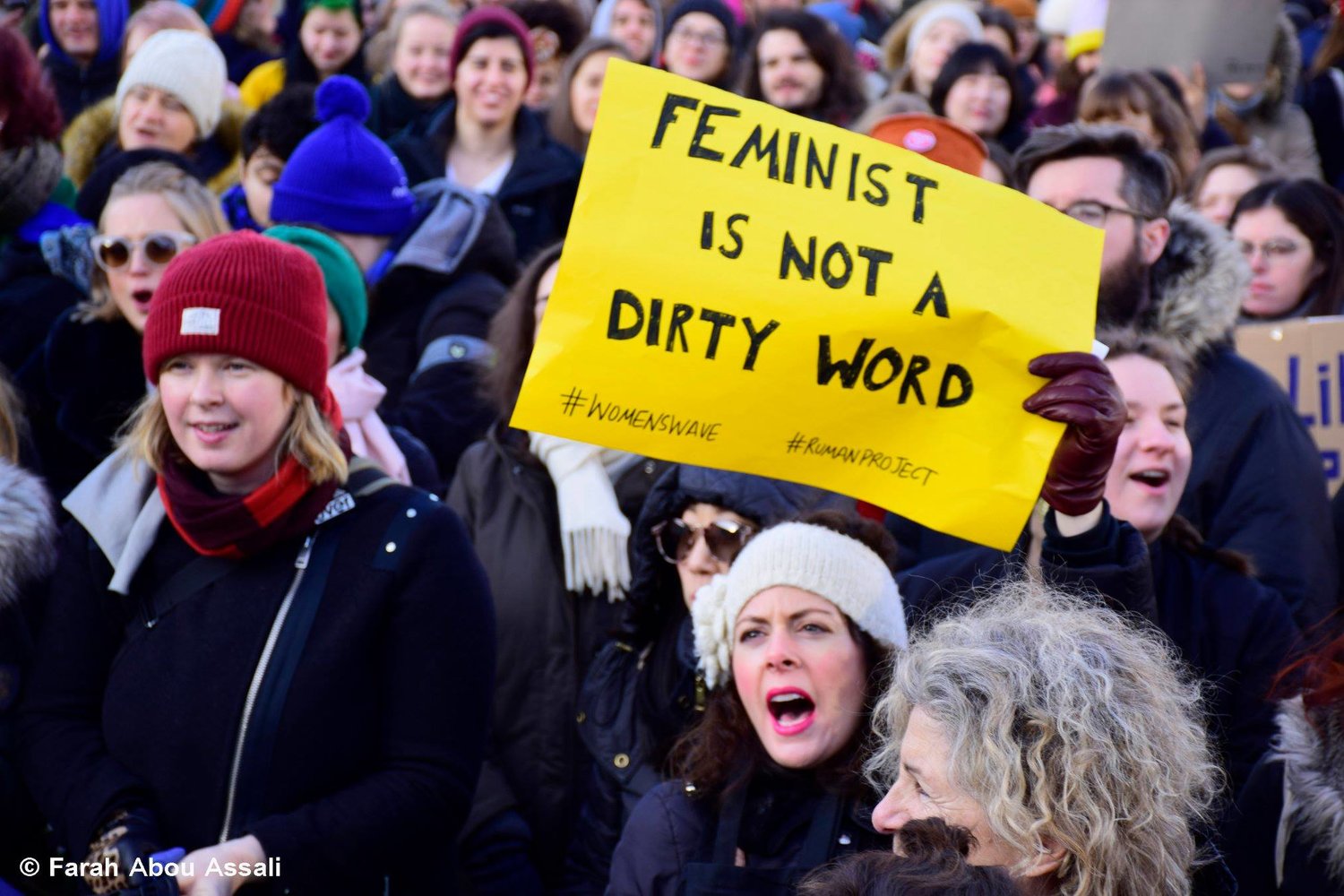
Sarah Durante, a Ruman Project supporter, in front of the Brandenburg Gate on January 19, 2018.
The challenges faced by women and people of faith are not mutually exclusive and we should look forward to women of faith and minority backgrounds leading the way in advancing community efforts to fight oppression. When we meet the needs of the most vulnerable, the needs of other women will be met too. Challenge yourself and your friends: focus on dismantling your own prejudices and building meaningful relationships that don’t discredit religious women’s agency. Unless we center women of color, refugee women and Muslim women, this will simply be a short moment in time and not a magnificent global movement.
2019 will test us in so many ways, but my religion has taught me that “Open minds, open hearts, open doors.” Maybe if we are all a little more open and tolerant of one another, our own inner walls, as well as the unnecessary ones being built at our borders, will come tumbling down.
